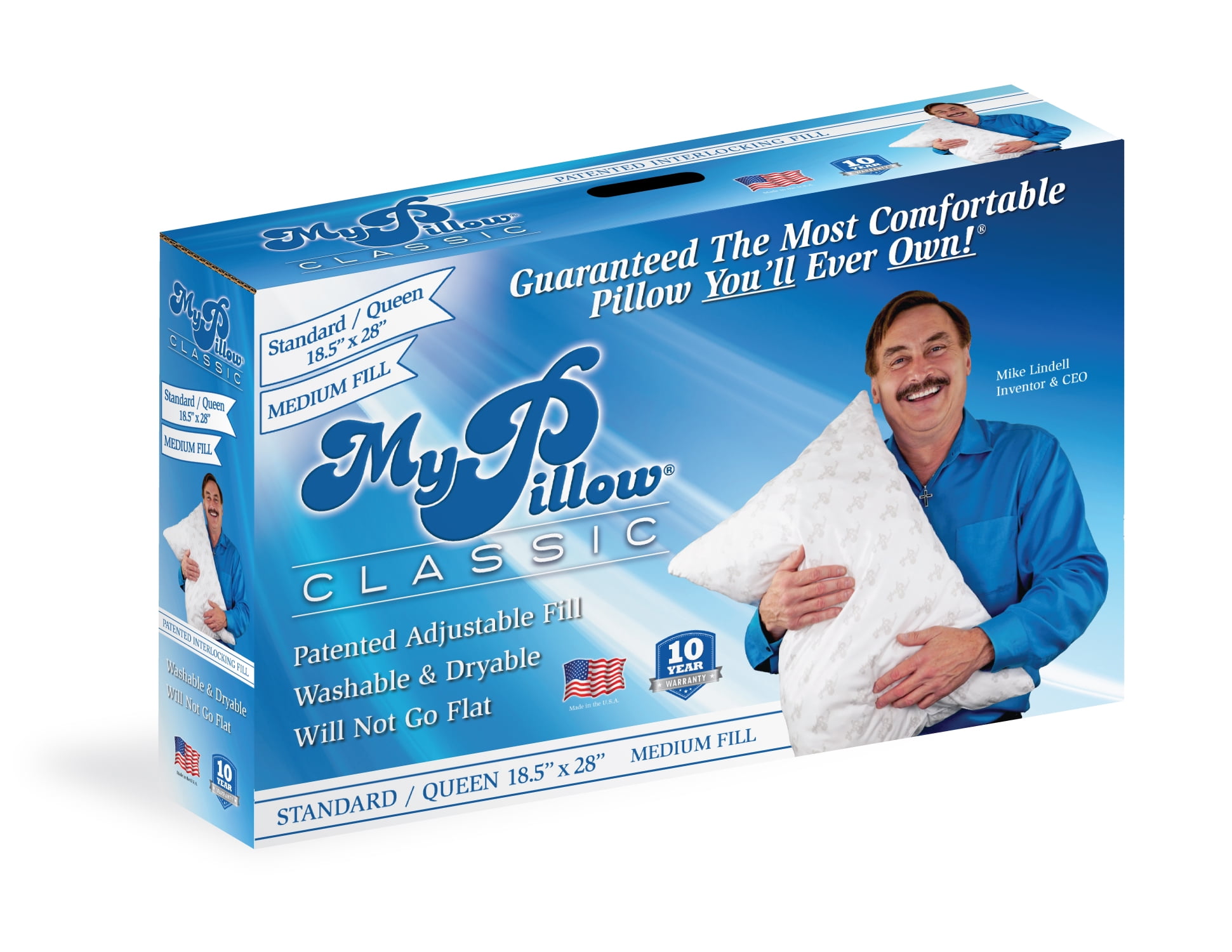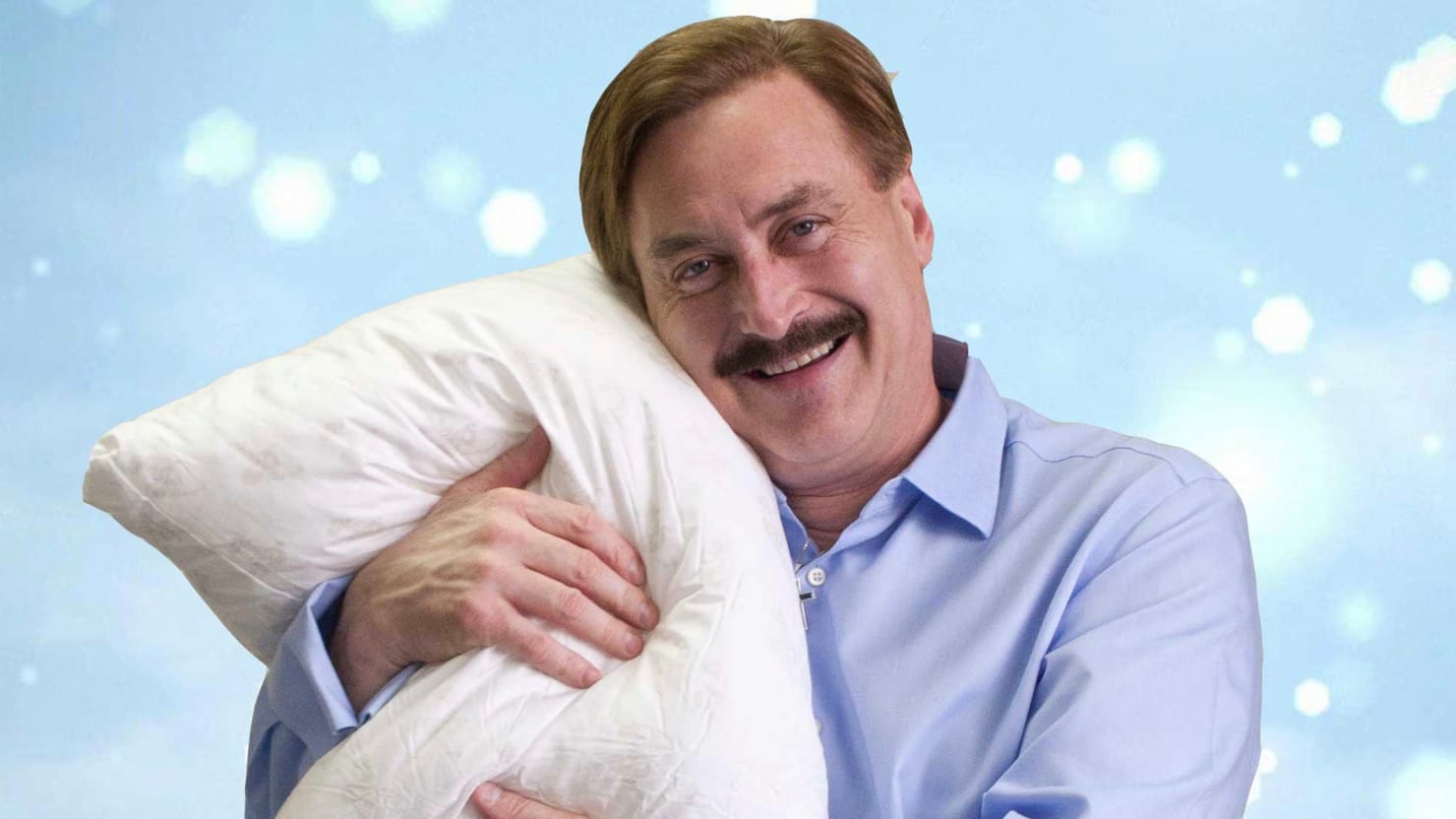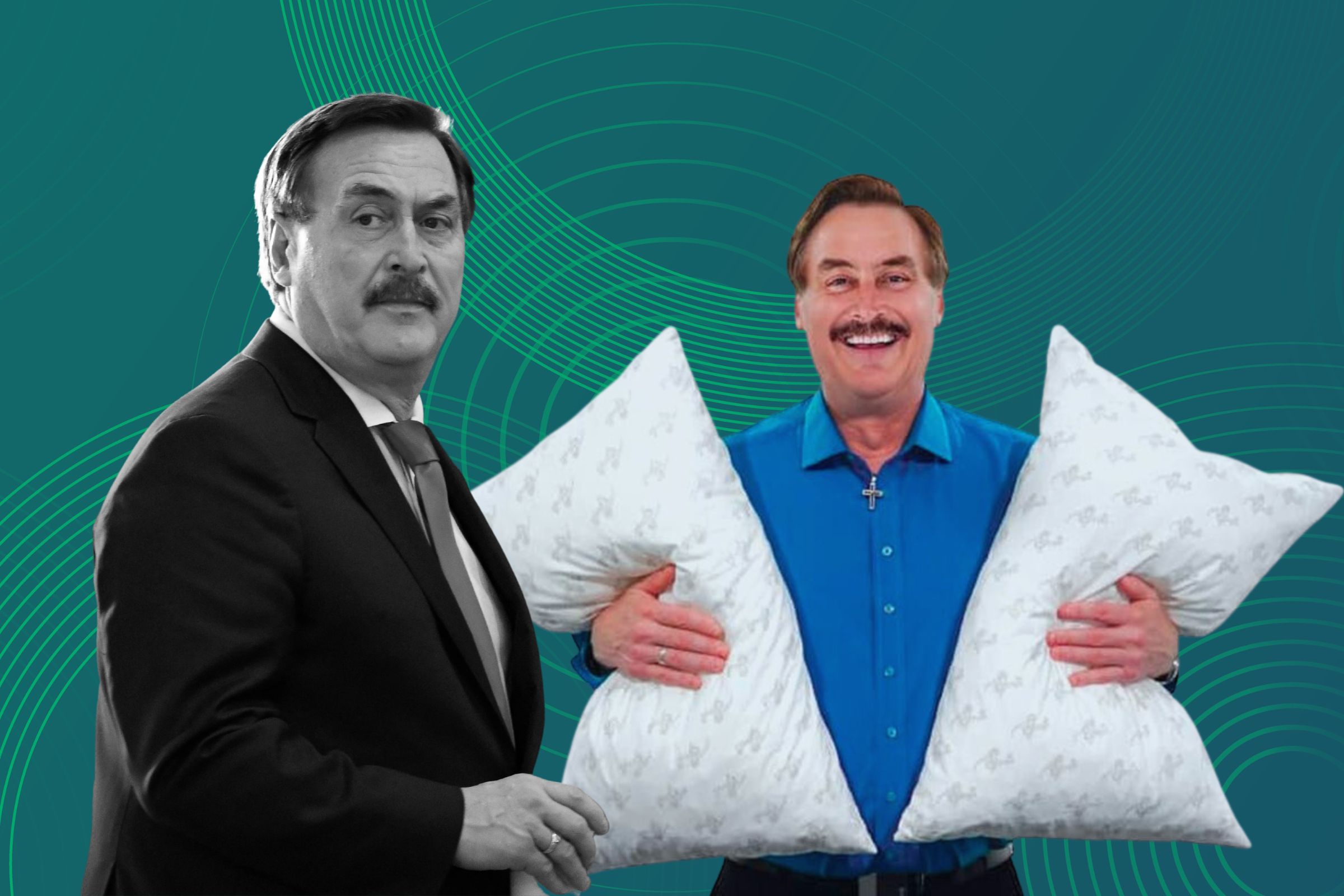Is MyPillow Still Kicking? Unpacking Its Current Business Status
The question on many consumers' minds, "Is MyPillow still in business?", has become increasingly complex over the past few years. What once was a ubiquitous brand, synonymous with its enthusiastic founder Mike Lindell and his infomercials, has faced a tumultuous period marked by significant financial hurdles, legal battles, and a dramatic shift in its retail presence. Understanding the current state of MyPillow requires delving into the unique challenges it has encountered and how the company has attempted to navigate them.
From widespread availability in major retail chains to a more direct-to-consumer model, MyPillow's journey is a testament to the profound impact of non-business-related controversies on a company's bottom line. While Mike Lindell, the founder and CEO, remains a prominent figure, his outspoken political views have undeniably shaped the trajectory of his once-booming enterprise. This article will explore the intricate details of MyPillow's current operations, its financial health, and what the future might hold for this polarizing brand.
Table of Contents
- The Enduring Question: Is MyPillow Still in Business?
- Mike Lindell: The Man Behind MyPillow
- The Controversies That Shook MyPillow
- Navigating the Storm: MyPillow's Current Operations
- Financial Health: A Deep Dive into MyPillow's Books
- MyPillow's Future: What Lies Ahead?
- Beyond Pillows: MyPillow's Product Diversification
- Consumer Considerations When Buying From MyPillow
The Enduring Question: Is MyPillow Still in Business?
For anyone wondering, "is MyPillow still in business?", the straightforward answer is yes. Yes, MyPillow is still in business, although the company has faced significant challenges and transformations in recent years. Despite the controversies, MyPillow is still operational and continues to sell products through its website and other retail partners. The company is navigating through these turbulent waters, striving to maintain its presence in the bedding market.
However, this simple "yes" comes with substantial caveats. While MyPillow remains technically operational in 2025, the company faces severe financial distress amid mounting legal troubles and declining retail partnerships. This situation presents a stark contrast to its peak, when MyPillow products were readily available in nearly every major department store and big-box retailer across the United States. The shift has been dramatic, moving from mainstream retail dominance to a more niche, often direct-to-consumer, approach.
The resilience of MyPillow, despite the headwinds, is largely attributed to its founder's determination and a loyal customer base. However, the scale of the financial challenges and the public perception issues mean that its operational status is consistently under scrutiny. The question "is MyPillow still in business?" often implies a deeper concern about its long-term viability and stability, rather than just its immediate existence.
Mike Lindell: The Man Behind MyPillow
To truly understand the trajectory of MyPillow, one must first understand its charismatic, albeit controversial, founder, Mike Lindell. His personal journey, from addiction to entrepreneurship, is as much a part of the MyPillow story as the product itself.
Early Life and Entrepreneurial Spirit
Michael James Lindell was born on June 28, 1961, in Mankato, Minnesota. His early life was marked by struggles with addiction, particularly to crack cocaine, which he battled for many years. Despite these personal challenges, Lindell always possessed an entrepreneurial spirit, engaging in various small businesses, including carpet cleaning and lunch trucks. It was this persistent drive, combined with a moment of clarity and a commitment to sobriety, that eventually led him to conceive of the MyPillow idea.
Lindell's personal story of overcoming addiction became a central theme in MyPillow's early marketing, resonating with many customers and adding a layer of authenticity to his brand. He often spoke openly about his past, positioning himself as a relatable figure who found redemption and success through hard work and faith.
The Birth of MyPillow
The concept for MyPillow originated from Lindell's own frustration with uncomfortable pillows. He spent years experimenting with different foam types and designs, eventually developing a unique open-cell, interlocking foam fill that he claimed provided superior support and adjustability. In 2004, MyPillow was officially founded. Initially, Lindell sold the pillows at kiosks in malls, trade shows, and state fairs, often working tirelessly to promote his product directly to consumers.
The real breakthrough came with the advent of infomercials. Lindell became the face of his own brand, appearing in lengthy television advertisements that ran frequently, especially on late-night TV. His enthusiastic, homespun pitch, combined with a compelling product demonstration, propelled MyPillow into national recognition. Within a few years, MyPillow became a household name, seemingly overnight, and its products were stocked in thousands of retail locations across the country, making the question "is MyPillow still in business?" almost unthinkable at the time.
| Personal Data / Biodata | Details |
|---|---|
| Full Name | Michael James Lindell |
| Born | June 28, 1961 (age varies by current year) |
| Birthplace | Mankato, Minnesota, U.S. |
| Nationality | American |
| Occupation | Businessman, Entrepreneur, CEO of MyPillow |
| Known For | Founder and CEO of MyPillow, conservative political activism |
| Alma Mater | University of Minnesota (attended, did not graduate) |
| Spouse(s) | Karen Dickey (m. 1987; div. 1990) Dallas Yocum (m. 2013; div. 2013) |
| Children | 4 |
The Controversies That Shook MyPillow
While MyPillow's initial success was undeniable, its journey took a sharp turn when Mike Lindell became increasingly involved in political activism. These actions, far removed from the bedding industry, sparked a series of controversies that profoundly impacted the company's financial stability and retail partnerships, directly leading to the current situation where many ask, "is MyPillow still in business?"
Political Stances and Public Backlash
Lindell became a vocal supporter of former President Donald Trump, particularly after the 2020 U.S. presidential election. He publicly amplified claims of widespread election fraud, participating in rallies, producing documentaries, and engaging in various legal efforts to challenge the election results. These actions, which were widely discredited by election officials, courts, and independent experts, drew significant media attention and polarized public opinion.
While Lindell's political engagement endeared him to a segment of the population, it alienated a substantial portion of consumers and business partners. The controversy transcended political affiliation, as many viewed his claims as baseless and harmful to democratic processes. This public backlash directly translated into calls for boycotts of MyPillow products, putting immense pressure on retailers who stocked the brand.
Retailer Exodus and Financial Strain
The calls for boycotts, combined with the controversial nature of Lindell's statements, prompted a significant number of major retailers to distance themselves from MyPillow. Companies like Kohl's, Bed Bath & Beyond, Wayfair, and H-E-B, among others, stopped stocking MyPillow products. This "retailer exodus" was a devastating blow to MyPillow's distribution network, which had relied heavily on these partnerships for visibility and sales volume.
MyPillow CEO Mike Lindell has claimed the company lost $100 million after major retailers stopped stocking its products in response to his vocal support for the discredited election fraud claims. This staggering figure highlights the severe financial distress caused by the loss of these key retail channels. Lindell’s business, MyPillow, has faced financial challenges partially attributable to his controversial political statements and the fallout from his actions. This forced MyPillow to pivot its business model, focusing almost exclusively on direct sales through its website and infomercials, a strategy that, while keeping the company afloat, significantly reduced its market reach and revenue.
Navigating the Storm: MyPillow's Current Operations
Despite the immense pressure and financial setbacks, MyPillow has continued to operate, albeit in a significantly altered landscape. The company has had to adapt its business model and streamline its operations to survive the challenges stemming from its founder's controversies. The answer to "is MyPillow still in business?" is a testament to this adaptation.
Online Sales and Direct-to-Consumer Model
With the departure of major retail partners, MyPillow shifted its primary sales focus to its official website, MyPillow.com. This direct-to-consumer model allows the company to bypass traditional retailers and sell products directly to customers. Lindell has also continued to utilize infomercials and his own media platforms, such as FrankSpeech.com, to promote products and drive traffic to his website. This strategy helps MyPillow maintain revenue streams and connect directly with its remaining customer base, many of whom are loyal supporters of Lindell himself.
While this model offers higher profit margins per sale by cutting out the middleman, it also means MyPillow is solely responsible for all aspects of marketing, customer service, and fulfillment. The absence of shelf space in popular stores significantly reduces impulse purchases and organic discovery, making the company's continued operation a more active, intentional effort on its part.
The Eviction Saga: Warehouse Woes
Further complicating MyPillow's operational landscape are recent legal and logistical challenges. (ap) — A court ordered the eviction Wednesday of MyPillow from a suburban Minneapolis warehouse that it formerly used, but company founder and prominent election conspiracist Mike Lindell claimed the building had been sitting empty for months. MyPillow is getting evicted from one of two Shakopee warehouses it leases, but CEO Mike Lindell told the reformer that the building has been sitting empty since last fall.
This eviction, while potentially disruptive, was downplayed by Lindell, who stated the warehouse in question had not been actively used for some time. This suggests MyPillow has either consolidated its operations or moved to other facilities. Regardless, the public nature of such legal proceedings adds to the narrative of a company under duress, further fueling questions about its stability and prompting inquiries like, "is MyPillow still in business?"
Financial Health: A Deep Dive into MyPillow's Books
The financial health of MyPillow is perhaps the most critical aspect when assessing its long-term viability. As noted, Lindell’s business, MyPillow, has faced financial challenges partially attributable to his controversial political statements and the fallout from his actions. The $100 million loss claimed by Lindell after major retailers pulled out is a stark indicator of the scale of the financial hit the company has endured.
MyPillow remains technically operational in 2025, but the company faces severe financial distress amid mounting legal troubles and declining retail partnerships. Beyond the loss of retail revenue, MyPillow has been embroiled in numerous lawsuits. These include defamation lawsuits filed against Lindell by Dominion Voting Systems and Smartmatic, companies he accused of election fraud. While these lawsuits target Lindell personally, they inevitably impact MyPillow's resources and public image. Legal fees alone can be astronomical, draining company coffers even if the company itself isn't directly named as a defendant in every case.
The combination of lost revenue, increased legal expenses, and a shrinking distribution network paints a challenging financial picture. While MyPillow continues to generate sales through its website, the volume is unlikely to match its peak performance when it enjoyed widespread retail presence. This financial strain directly affects the company's ability to invest in new products, marketing, and even day-to-day operations, making the question "is MyPillow still in business?" less about existence and more about sustainability.
MyPillow's Future: What Lies Ahead?
Predicting the future of MyPillow is challenging, given the unique interplay of business operations, political controversy, and the personal brand of Mike Lindell. The company's continued existence hinges on several factors.
Firstly, MyPillow's ability to maintain its direct-to-consumer sales will be crucial. This requires ongoing investment in marketing, particularly through infomercials and digital advertising, to reach its target audience. Secondly, the outcome of Mike Lindell's various legal battles will undoubtedly have a significant impact. Large financial judgments against him could indirectly affect MyPillow's assets or its ability to secure financing.
Thirdly, the political climate and public perception will continue to play a role. While MyPillow has a loyal customer base, expanding beyond that base to attract new customers will be difficult if the brand remains synonymous with controversy. The company's future might involve a more streamlined operation, focusing on a core set of products and a dedicated customer segment. The question "is MyPillow still in business?" may evolve into "how long can MyPillow remain in business under these conditions?"
Beyond Pillows: MyPillow's Product Diversification
While the name "MyPillow" clearly indicates its flagship product, the company has, over the years, attempted to diversify its offerings. This strategy is common for businesses seeking to expand market share and reduce reliance on a single product. For MyPillow, this diversification has been an ongoing effort, even amidst the recent challenges, aiming to ensure that "is MyPillow still in business?" can be answered affirmatively.
MyPillow's product line now extends beyond just pillows to include a range of bedding and home goods. These include:
- MyMattress Topper: Designed to enhance the comfort of existing mattresses.
- MySheets: A line of bed sheets made from various materials.
- MyComforter: Duvets and comforters.
- MySlippers and MyGiza Robes: Expanding into comfort wear.
- Towels: Another addition to the home goods category.
- Pet Beds: Catering to pet owners.
The strategy of offering a wider array of products helps MyPillow maintain its relevance and potentially cushion the impact of declining pillow sales if consumer preferences shift or if the core product faces increased competition. It also provides more options for loyal customers who wish to support the brand beyond just their initial pillow purchase. This multi-product approach is a key part of how MyPillow is attempting to ensure its long-term viability and answer the question "is MyPillow still in business?" with a resounding yes for years to come.
Consumer Considerations When Buying From MyPillow
For consumers contemplating a purchase from MyPillow, understanding the current landscape is crucial. While the primary question, "is MyPillow still in business?", has been answered, there are broader considerations beyond mere operational status.
Firstly, the purchasing experience has largely shifted. Customers will primarily interact with MyPillow through its official website. This means relying on online reviews, direct customer service, and the company's shipping and return policies. It's advisable for consumers to thoroughly review these policies before making a purchase, as the traditional retail safety net of easy returns to a physical store is no longer widely available.
Secondly, the financial distress facing MyPillow, as detailed earlier, is a factor to consider. While the company is still fulfilling orders, severe financial challenges could, in extreme scenarios, impact warranties, future customer support, or the company's long-term ability to operate. For a YMYL (Your Money Your Life) perspective, while a pillow purchase isn't typically life-altering, understanding the financial stability of the company you're giving your money to is always prudent. Consumers should weigh the perceived value of the product against the potential risks associated with a company navigating significant financial and legal hurdles.
Ultimately, the decision to purchase from MyPillow involves not just an assessment of the product's quality but also an awareness of the brand's unique circumstances. For those who prioritize supporting the brand despite its controversies, MyPillow remains an accessible option. For others, the controversies and financial challenges might lead them to seek alternatives. The key is to make an informed decision, knowing that MyPillow is indeed still in business, but not without considerable challenges.
Conclusion
In conclusion, the answer to the prevalent question, "is MyPillow still in business?", is unequivocally yes. Despite facing unprecedented challenges stemming from its founder Mike Lindell's controversial political activities, including a significant loss of retail partnerships and severe financial distress, MyPillow continues to operate. The company has pivoted to a predominantly direct-to-consumer model, selling products through its website and maintaining its brand presence through infomercials and Lindell's own media platforms.
However, MyPillow's operational status comes with the caveat of ongoing legal battles and financial strain, as evidenced by the reported $100 million loss and recent warehouse eviction notices. The future of MyPillow remains tied to its ability to navigate these turbulent waters, manage its financial health, and maintain its loyal customer base. While the brand is far from its peak, its resilience demonstrates a determined effort to stay afloat in a highly competitive market under extraordinary circumstances.
We hope this in-depth analysis has provided clarity on MyPillow's current business status and the factors influencing its trajectory. What are your thoughts on MyPillow's journey? Have you purchased from them recently? Share your experiences and insights in the comments below. If you found this article informative, please consider sharing it with others who might be asking, "is MyPillow still in business?" or exploring other articles on our site for more business insights.

My Pillow Net Worth: A Comprehensive Analysis Of Mike Lindell's Success

My Pillow: A Closer Look at the Company and the Man Behind It

Mike Lindell's MyPillow Empire is Unraveling - Newsweek